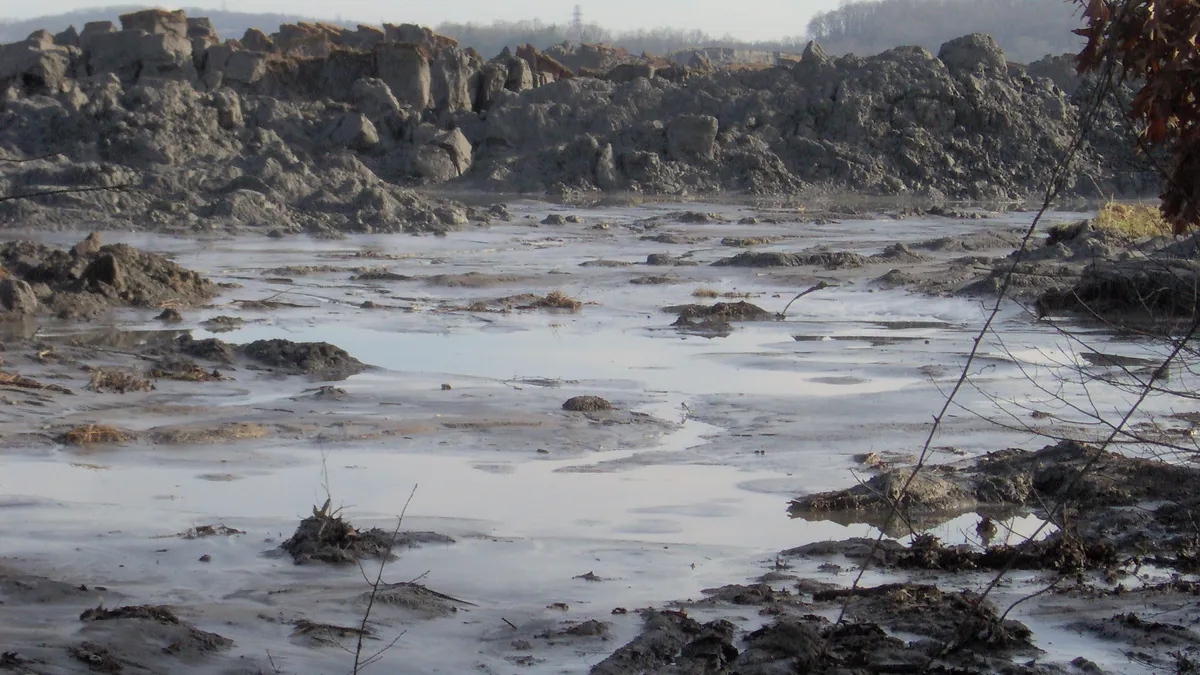Dive Brief:
- Duke Energy CEO Lynn Good last week fielded questions from analysts about the company's proposed 14.9% rate increase to help pay for coal ash cleanup in North Carolina, responding that the utility has been rigorous about keeping costs down.
- Duke Energy Progress requested the increase in June, totaling $477.5 million in additional annual revenue.
- The Sierra Club has filed a petition to intervene in the case, pointing out that for residential customers the increase would be even higher, about 16.7% or $17.80 more on the average customer's monthly bills.
Dive Insight:
Duke officials took questions during the company's quarterly earnings call last week, including one from an analyst who said the utility's recent rate increase proposal amounted to "a pretty substantial number."
The utility is proposing almost $500 million in new revenue to pay for some grid improvements, plant upgrades and new solar, "and of course, coal ash," CEO Good said in the call.
Duke has not been to the Public Service Commission seeking a rate increase in a few of years, Good pointed out. And she touted the utility's "very aggressive cost management."
"I have confidence that we'll deliver an outcome that makes sense for both customers and investors," Good said.
Earlier this year, Duke indicated coal ash cleanup costs could exceed $5 billion over the next several years —significantly higher than previous estimates. Most of those costs would be in North Carolina, but Duke will file a rate case in South Carolina in 2018.
Duke Carolinas spent $434 million from 2015 through November of 2016, while Duke Energy Progress spent about $292 million. Earlier this year, Duke Carolinas said it had removed almost 3 million tons of coal ash at three facilities, including the Dan River plant. Duke Progress had removed about 2 million tons from its Asheville and Sutton plants. But environmental and customer advocates say ratepayers shouldn't be on the hook for the utility's decisions.
“This rate hike would especially hurt people on low and fixed incomes, who shouldn't’t have to pay nearly $20 dollars a month before they even flip a switch in their homes, just to bail out Duke for its bad decisions," Dave Rogers, the Sierra Club’s Beyond Coal campaign representative in North Carolina, said in a statement.
Currently, Duke Progress has a return on equity of 10.2%, and Good said on the call that "10.75% is a dependable ask, but ROE is always a topic of discussion, and will be in this case."
Duke Energy last week announced second quarter 2017 reported diluted earnings per share of $0.98/share, compared to $0.74 for the same period last year. Adjusted diluted earnings per share for the quarter were lower than in 2016, partly due to weather and higher income tax. Offsetting those factors were higher retail revenues from increased pricing and riders, and stronger retail volumes.















